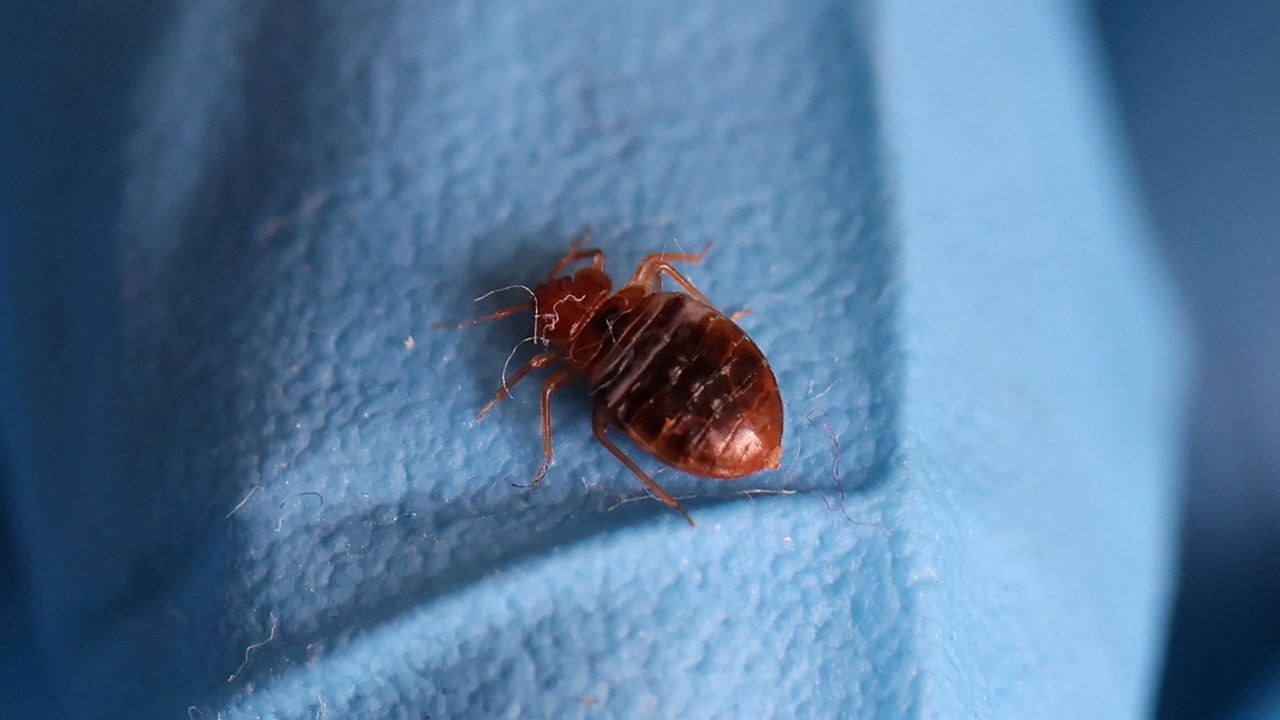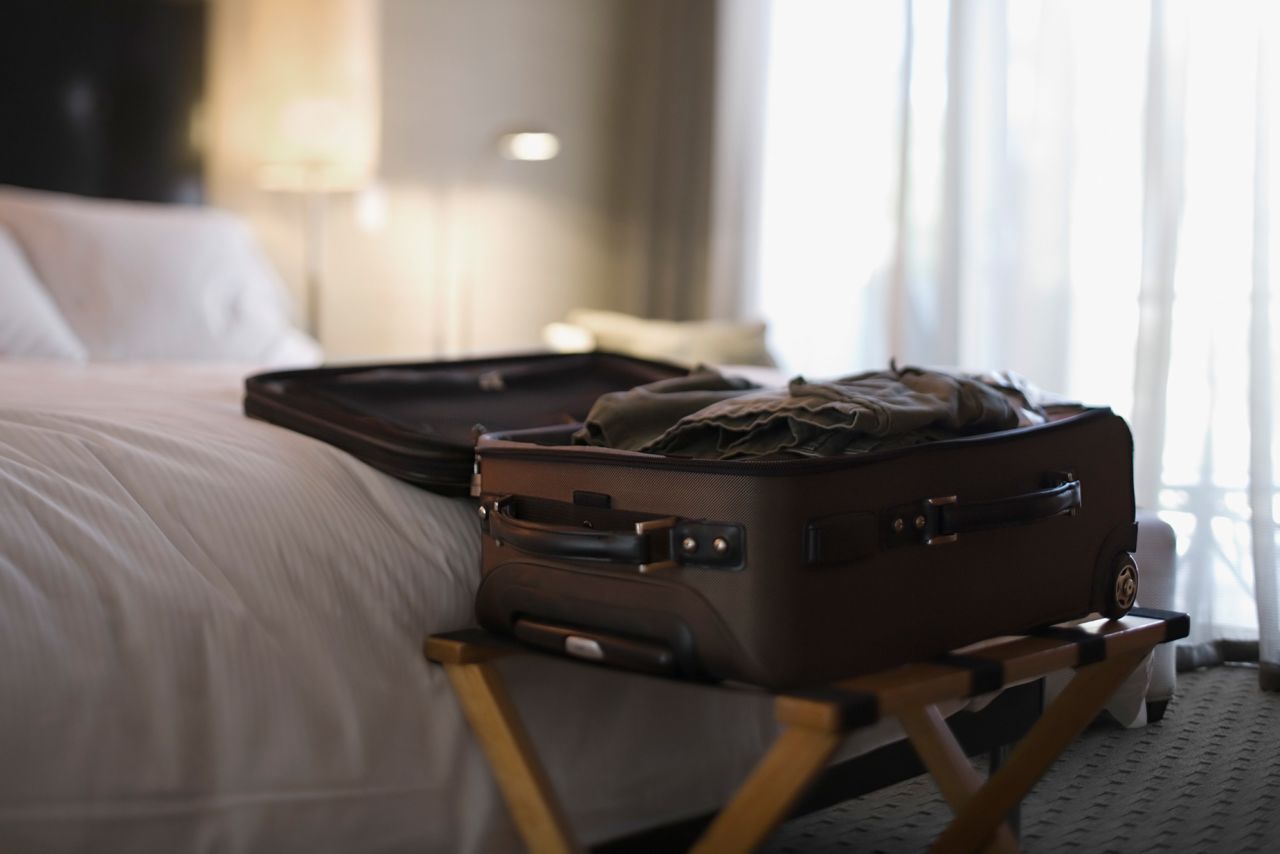begin quote from:
https://www.cnn.com/travel/what-you-need-to-know-about-europes-bedbug-panic-wellness/index.html
What you need to know about Europe’s bedbug panic

Dermatologist Zeina Nehme says her clinic usually sees a number of cases every summer in which patients have been bitten by bedbugs while traveling. Yet surprisingly enough, she says none materialized this year.
However, like anyone else not living under a rock, Nehme has seen the flurry of headlines and social media accounts documenting the bedbug paranoia in Paris, which erupted during Fashion Week and has since spread to other cities including London.
So, during her recent trip to the City of Light, Nehme decided to embark on an experiment of sorts: to see one of the troublesome critters firsthand and use it as fodder for a social media video.
But Nehme, who is based in Beirut, Lebanon, says she found nary a pesky parasite during her long weekend: not on the metro, in restaurants, nor the 17th arrondissement apartment where she stayed with a friend.
“Since I am a dermatologist and I post a lot on my clinic account, I thought it would be nice to post a reel on bed bugs,” she told CNN Travel. “I actively searched to find one to take pics and do the reel. Nothing.”
Cynthia Starkey, a lawyer based in Phoenix, also had a close eye out for the critters while she and her daughter recently visited Paris during their three-month, six-country trip through Europe. But, like Nehme, neither saw any in their Airbnb rental, on public transit, or elsewhere.
In fact, Starkey said, most of the panic about the Paris leg of their trip has come from friends and family elsewhere – like her sister back in the US, who texted Starkey that she’d heard the 2024 Summer Olympics, which will be held in Paris, were being canceled because of the bedbug situation.
“I was like, ‘I find that very hard to believe’,” Starkey told CNN Travel.
Following a previous heads-up Starkey received from a journalist friend who lives part time in Europe about the bedbug situation, Starkey’s daughter, Mikayla, had already done some online research.
“She’s like, ‘I’m seeing that it’s no worse this year than any other year, and I’m not concerned,’” Starkey said. “So if she wasn’t concerned, I’m not either.”
Such accounts tell a different story than the one painted by itch-inducing tabloid headlines and social media accounts showing images of infested mattresses and furniture tossed into alleyways.
According to some entomologists and travelers, the reality is a bit more nuanced: While bedbugs of course exist – and very well may be resurging in tourist hubs like Paris following yet another summer of blockbuster travel – the actual situation, while unpleasant, feels considerably more overblown in the media than it does out-of-control on the ground.
“I expect that somebody happened to notice it, and for one reason or another, probably at the time because it was Fashion Week, the right things aligned and it just happened to bring this to the media,” Zach DeVries, assistant professor at the University of Kentucky’s entomology department, told CNN Travel.
“Bedbugs, more than any pest, kind of grab people’s attention, and I think it’s more likely that it just got the attention [of the media] rather than being an actual outbreak.”
DeVries also said he wouldn’t advise travelers to cancel an upcoming trip to Europe or anywhere else based on bedbugs. However, travelers can use the latest headlines as a reminder to be more diligent about their surroundings.
“It’s being cognizant and aware that they could be there but not being – I don’t like using the term paranoid – but not being paranoid, to the point where you don’t travel or do things anymore,” DeVries said. “You can balance your travel with a healthy perspective on the environments you may be going into.”

‘No reason for general panic’
Reports of bedbugs in Paris began popping up during Fashion Week, from September 25 to October 3, with a few videos of the vermin crawling on public transit.
Freaked-out fashionistas in town then started documenting their concerns on social media, and the mainstream media soon began picking up the story as well. Paris officials soon stepped into the conversation, promising to take action, and, as reported by French newspaper Le Monde, President Emmanuel Macron’s Renaissance Party pledged on October 3 that it would put forth a bill to combat the “scourge” of bedbugs.
“No one is safe,” Deputy Mayor of Paris Emmanuel Grégoire posted on X/Twitter, on September 29. “Faced with a bedbug infestation, coordinated measures are needed that bring together health authorities, communities and all relevant stakeholders to prevent the risk and act effectively.”
Amid a growing panic among both Parisians and travelers, French Health Minister Aurélien Rousseau pleaded with the public to remain calm, saying there was “no reason for general panic” and that “France has not been invaded by bedbugs” in an October 3 interview with French outlet France Inter.
Yet that still hasn’t stopped the fear – if not any infestation itself – from spreading to other European hotspots, perhaps most notably London. Some travelers began voicing concerns that the bugs were hitching a ride from Paris to the UK capital on the Eurostar.
Speaking to website PoliticsJoe, London Mayor Sadiq Khan called the situation “a real source of concern” and said officials were taking preventative measures to avoid the problems Paris had been facing.
Exact figures that accurately document the situation are difficult to come by. One statistic that’s been widely circulated in the media comes from a survey by Anses, the French Agency for Food, Environmental and Occupational Health & Safety, that claims more than 1 in 10 French households had been infested by bedbugs over the previous five years.
However, as noted by Joe Rominiecki, senior manager of communications of the Entomological Society of America, “it doesn’t place that into much context or note any data for this year.”
Anecdotal evidence also is difficult to quantify.
“I’ve been in conversations with some colleagues who are based in Europe, and some of them tell me, ‘yeah, it’s nowhere near as bad as what you’re hearing,’ and then others are saying, ‘Yeah, it is, bedbugs have swept across the landscape,” said Richard Pollack, senior environmental public health officer for Harvard Campus Services (Pollack noted that he was not speaking on behalf of his employer). “But then I question, what is the basis on which they have offered this proclamation?”
In addition, experts note that the parasitic problem isn’t confined to Paris – just ask anyone who was living in New York during the mid- to late 2000s, when a surge of Big Apple bedbugs captured headlines for weeks – and that the situation can easily be overblown in news reports.
“Bedbugs had, indeed, become resurgent, but not nearly to the levels that were described in the media,” said Pollack, who recently returned, bedbug-free, from a two-week trip to the Netherlands, Belgium, Luxembourg, Germany and France. “I anticipate that the upcoming Olympics in France might, in some way, be contributing to the level of recognition, fear, and fear-mongering.”
In addition to London, other western European countries that are easily accessible via train connections from Paris, including the Netherlands, have been keeping an eye on the situation. Dutch public health officials told NL Times, an English-language outlet, that there appears to be no current sign of infestation in the Netherlands.
Yet in Belgium, doctors in Antwerp are “sounding the alarm” about the spread of bedbugs from Paris, according to The Brussels Times.
Meanwhile, some airlines are taking a proactive stance. In a statement provided to CNN Travel, an Air France spokesperson said there have been no incidents involving bedbugs on flights in recent years, and the airline follows strict protocols and recommendations from the World Health Organization in terms of insect eradication.
In addition to its normal cleaning procedures, the carrier also has introduced a specific procedure “to deal with reports of suspected bedbugs presence,” which includes grounding the aircraft and performing a chemical treatment by an “accredited service provider.”

Precautions travelers can take
One possible upside to all the recent bedbug hype: It offers travelers a reminder to start taking extra steps to stay as safe as possible when it comes to the little buggers.
Experts recommend a thorough check of hotel rooms, keeping an eye out for telltale signs like reddish-brown marks (which come from – yuck – crushed, blood-fed bugs) along mattress seams and other soft surfaces. Another wise move is to keep your suitcase on a luggage rack.
A funky smell is another potential indication of an infestation, as bedbugs communicate through releasing chemicals that leave a “sweet or musty odor” behind, according to the American Academy of Dermatology Association.
Travelers who suspect an infestation should take photos and report it to hotel staff immediately. If you have to cancel a booking, travel insurance can also come in handy, too, but be sure to read the fine print beforehand to see what’s covered. But as Citizens Advice, a UK-based consumer rights organization, notes in its section about bedbugs: “If you didn’t complain about bedbugs at the time, it’s very hard to claim compensation afterwards.”
Don’t forget to keep up the effort when you return home, either. If possible, store your suitcase away from living areas (Pollack stores his in the basement following a trip), and wash and dry your clothes on high-heat cycles. For the ones you can’t wash, steam and freezing (yes, you can toss them right in the freezer but be sure to put them in a plastic bag first, advises Orkin Canada) also should do the trick.
Some travelers are taking their precautions even further, like a social media user who recently shared a video on TikTok of themself sporting a head-to-toe hazmat style suit — a la Naomi Campbell on an airplane — on a Eurostar train, proclaiming “bedbugs are not gonna get me.”
And for others, there’s no measure imaginable that would make them feel comfortable taking a trip to a place with documented cases.
Colleen Oakley, a bestselling novelist in Atlanta, told CNN Travel she would “absolutely not travel” to Paris right now based on her “awful” experience with the creepy crawlies in 2006. Oakley and the friend she was living with had to vacate their sublet in New York’s West Village neighborhood and stay in a hotel for three weeks while their apartment was treated.
“I had PTSD for years,” she said. “Bedbugs are a pain to get rid of — time-consuming, expensive, and for weeks after I was never really sure we got them all, so I would wake up with anxiety in the middle of the night. It sounds silly to have panic attacks over bugs, but they are really invasive critters. Definitely not worth it, at least for me, for a vacation.”
No comments:
Post a Comment